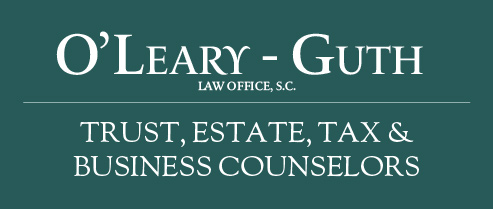CARES Act Makes Taxpayer Friendly Changes to IRA Tax Laws
Posted: April 6, 2020
On March 27, 2020, President Trump signed into law the CARES Act (the Coronavirus Aid, Relief, and Economic Security Act)[1]. The estimated $2 trillion stimulus package is the third[2], and by far the largest measure enacted in an attempt to diminish the economic hardship caused by the Coronavirus pandemic, and is the single largest aid bill in U.S. history.
While the primary objective of the CARES Act is to provide much needed financial assistance to individuals and businesses alike, the Act also made several changes to the rules governing IRA accounts, in an effort to help account owners deal with the financial consequences of the pandemic.
Perhaps most significantly, the CARES Act suspends required minimum distributions (“RMD”) for 2020 for all participants in employer retirement plans as well as all IRA owners.[3] This suspension eliminates the need to make RMDs based on higher December 31, 2019 market values. If you have already taken your RMD for 2020, it may be possible to roll the distribution back into your IRA if you do so within 60 days of receiving the distribution.[4] In addition, the IRS has extended the deadline to make a 2019 IRA contribution to the earlier of July 15, 2020 and the date you file your 2019 income tax returns.[5]
The CARES Act also has additional relief provisions for “qualified individuals”. For this purpose, a qualified person is someone who either:
- Has been diagnosed with COVID-19;
- Has a family member who has diagnosed with COVID-19; or
- Who was (i) quarantined (ii) laid off or had work hours reduced, (iii) unable to work due to lack of child CARES; or (iv) whose business owned closed or was open fewer hours, as a result of the outbreak.
The following provisions of the CARES Act apply to the retirement benefits of qualified persons.
- Qualified persons under age 59 ½ can withdraw up to $100,000 in 2020 without triggering the 10% penalty tax that normally applies to premature distributions;
- The amounts that a qualified person may borrow from his or her retirement account have been increased to the lower of $100,000 or 100% of the account balance (whichever is less);
- Qualified persons are not taxed on retirement account distributions that are repaid within 3 years; and
- Qualified persons can elect to spread the inclusion of retirement account distributions in income over a 3-year period.
The recent bear market brought on by the Coronavirus pandemic has resulted in a dramatic decline in the value of many retirement accounts. However, even this cloud has a silver lining. In this case, the silver lining is that the taxes due on a conversion to a Roth will be much lower than if the conversion were made before the bear market took hold. Moreover, bull markets typically follow bear markets. If the same proves to be the case this time around (as most market forecasters expect), the subsequent growth that follows the conversion will escape income taxes entirely.
Please contact us if you would like to discuss how the CARES Act affects your retirement planning. We would welcome the opportunity to speak with you.
Be safe and remain healthy,
Andrew J. Willms
Footnotes:
[1] Senate Amendment to H.R. 748.
[2] The first relief bill, signed March 6, funded healthcare preparation, vaccine research and telehealth initatives. The second relief bill, signed on March 18, funded paid sick and family leave, unemployment assistance, nutrition assistance and resources for testing.
[3] However, if you own a traditional IRA and the pandemic pushes you into a lower tax bracket, it might make sense to accelerate withdrawals to take advantage of the lower rates.
[4] There is some thought the IRS will extend this deadline. Then again, if the effects of the pandemic have dropped you into a lower income tax bracket, a 2020 distribution may still make sense.
[5] https://www.irs.gov/newsroom/filing-and-payment-deadlines-questions-and-answers (Q17).
Schedule an appointment with us today.
Meet with a knowledgeable attorney who specializes in your area of law.
1251 W. Glen Oaks Lane, Mequon, WI 53092
F: (262) 238-6999
